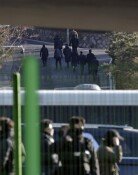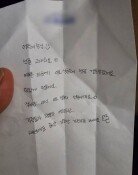Bills concerning inter-Korean matters shouldn’t be forced
Bills concerning inter-Korean matters shouldn’t be forced
Posted August. 04, 2020 07:44,
Updated August. 04, 2020 07:44
The Foreign Affairs and Unification Committee of the National Assembly laid and discussed 18 bills at once on Monday, including the revised bill of the Inter-Korean Exchange and Cooperation Act prohibiting the distribution of propaganda leaflets to North Korea. Most of them are bills proposed by the ruling Democratic Party of Korea that is determined to quickly pass them despite the United Future Party’s strong objection. The ruling party will process the bills through discussions with the opposition party on principle, however, they are not hiding their determination to forcefully pass them, if necessary.
Some of the bills proposed by the Democratic Party of Korea concerning inter-Korean matters could be largely interpreted as unconstitutional and cause a variety of controversies, such as preferential treatment regarding businesses with North Korea. Regarding the banning of sending leaflets to North Korea, which is the priority of the ruling party, the experts and legislative inspectors of the National Assembly has already published a report stating, “Such pre-censorship poses the risk of infringing on the constitutional freedom of expression.” The government has also added leaf-lefts, USBs, balloon devices, and drones, to the list of items that need pre-approval from the government to be traded or carried in/out, which is quite absurd and forced. It has also added dispatching leaflets to North Korea to the list of contacts between South Korean and North Korean residents, which require prior notice.
The revision bill of Development of Inter-Korean Relations Act even compensates for the unrealized expected profits of businesses – far beyond compensation for the loss of invested assets – in the case of sudden suspension of inter-Korean economic cooperation. It even contains a plan to build a special economic zone for inter-Korean peace near the border and provide support, which will only encourage speculation. There is even a revision bill that says that an inter-Korean agreement signed by the president should be considered as a constitutional conclusion and ratification procedure. It is an extremely irresponsible idea that can shake the entire legal system of South Korea.
The government has already launched a police investigation into an organization sending leaflets to North Korea, revoked permission of the organization’s incorporation, and conducted audits into many North Korean human rights groups. Even the UN's Special Rapporteur on North Korean Human Rights has recommended the South Korean government to suspend all of its related actions. Under such circumstances, if these bills, which are so controversial that the opposition party even describes them as “commanded by North Korea’s Kim Yo Jong, are passed with a breeze, South Korea’s national image will be seriously damaged.
Leaflets sent to North Korea may pose risks to residents in the border region by causing provocations from the North. However, such a matter does not require the revision of law. Rather, the government should convince the relevant groups and regulate them with existing laws, if necessary. Unlike the three laws concerning lease and rental, there is no urgency for political effect. Then, why on earth is the ruling party pushing the bills with such speed and forcefulness? Even a member of the opposition party who defected from the North deplores by saying, “Even in North Korea, things are not doe like this as if zipping through a highway.”
klimt@donga.com







